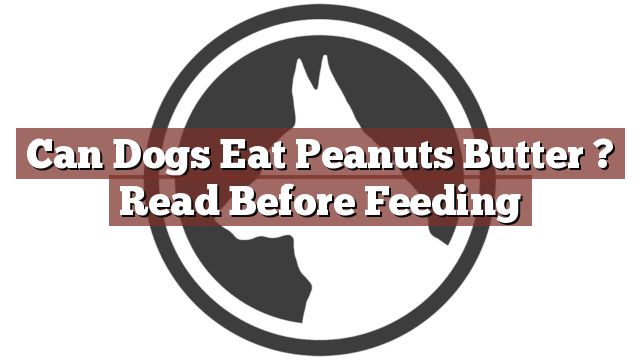Understanding Your Dog’s Dietary Needs
As dog owners, it is our responsibility to provide our furry friends with a healthy and balanced diet. While dogs are known to be omnivores, not all human foods are safe for them to consume. It is important to understand your dog’s dietary needs and know what foods can be harmful or beneficial for their overall well-being.
Can Dogs Eat Peanut Butter? Read Before Feeding
One common question that arises among dog owners is, can dogs eat peanut butter? The answer is yes, dogs can eat peanut butter, but there are a few important factors to consider before feeding it to your canine companion.
Peanut butter is a delicious and nutritious treat for most dogs. It is a good source of protein, healthy fats, and vitamins. However, not all types of peanut butter are safe for dogs. Avoid giving your dog peanut butter that contains xylitol, a sugar substitute that is toxic to dogs. Always make sure to read the labels and choose natural or organic peanut butter without any added sugars or artificial sweeteners.
Pros and Cons of Feeding Peanut Butter to Dogs
There are several benefits of feeding peanut butter to dogs. It can be a great way to give your dog medication by hiding it in a spoonful of peanut butter. Peanut butter also acts as a mental and physical stimulant for dogs, as they enjoy the challenge of licking it off a puzzle toy. Additionally, the healthy fats in peanut butter can help improve your dog’s coat and skin health.
However, it is important to note that peanut butter should be given in moderation. It is high in calories and fat, which can lead to weight gain and even pancreatitis if consumed excessively. Too much peanut butter can also cause digestive issues such as diarrhea or upset stomach. Always consult with your veterinarian before introducing peanut butter into your dog’s diet, especially if your dog has any pre-existing health conditions.
Conclusion: Considerations for Feeding Peanut Butter to Dogs
In conclusion, dogs can enjoy the occasional treat of peanut butter. However, it is crucial to choose a peanut butter that is free from harmful additives such as xylitol and to feed it in moderation. Always keep in mind your dog’s specific dietary needs and consult with your veterinarian if you have any concerns or questions regarding your dog’s diet. With proper knowledge and moderation, peanut butter can be a safe and enjoyable treat for your canine companion.
Thank you for taking the time to read through our exploration of [page_title]. As every dog lover knows, our furry friends have unique dietary needs and responses, often varying from one canine to another. This is why it's paramount to approach any changes in their diet with caution and knowledge.
Before introducing any new treats or making alterations to your dog's diet based on our insights, it's crucial to consult with a veterinarian about [page_title]. Their expertise ensures that the choices you make are well-suited to your particular pet's health and well-being.
Even seemingly harmless foods can sometimes lead to allergic reactions or digestive issues, which is why monitoring your dog after introducing any new food item is essential.
The content provided here on [page_title] is crafted with care, thorough research, and a genuine love for dogs. Nevertheless, it serves as a general guideline and should not be considered a substitute for professional veterinary advice.
Always prioritize the expert insights of your veterinarian, and remember that the health and happiness of your furry companion come first.
May your journey with your pet continue to be filled with joy, love, and safe culinary adventures. Happy reading, and even happier snacking for your canine friend!

